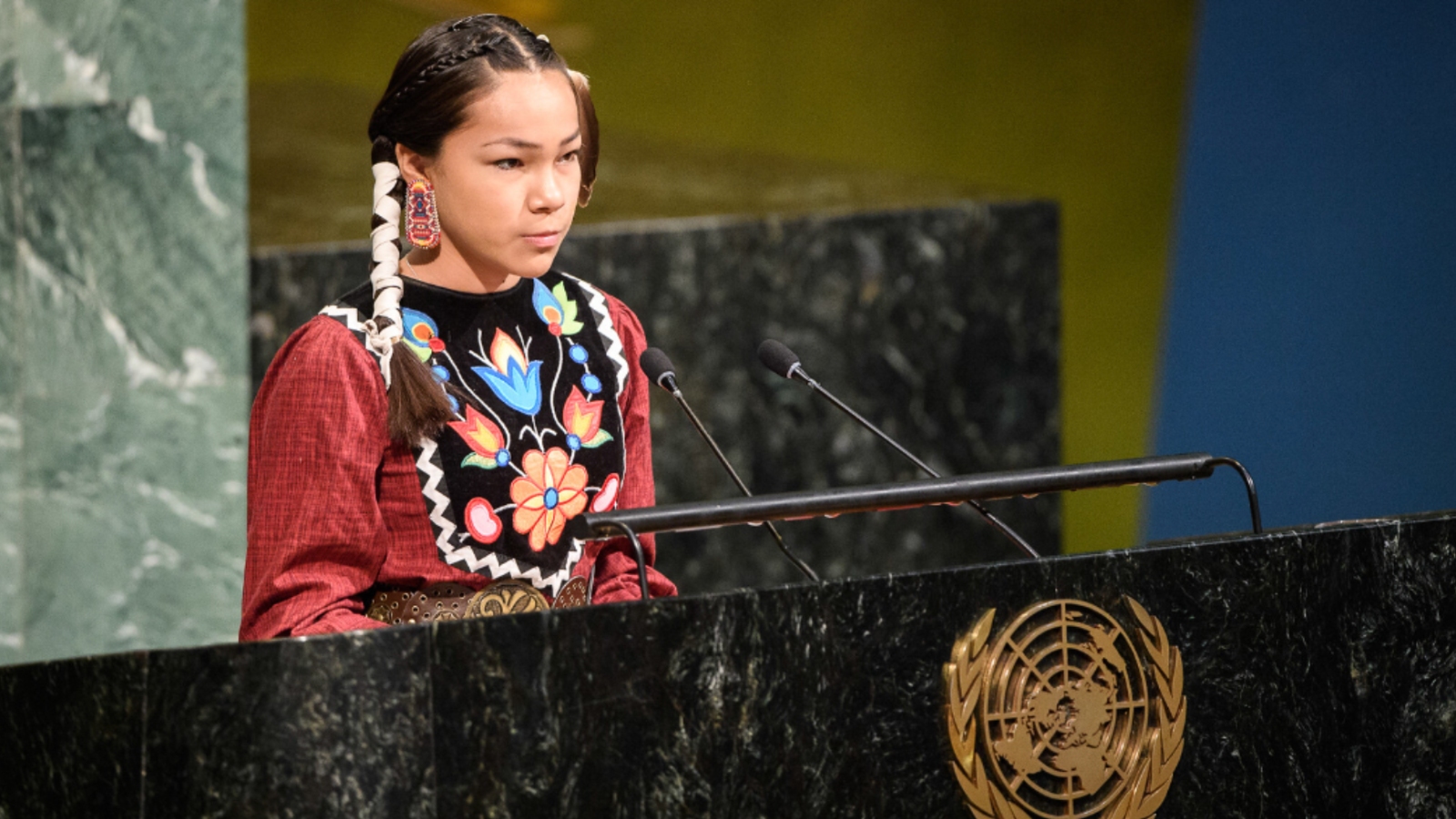
The UN Permanent Forum on Indigenous Issues (UNPFII) is one of three UN bodies addressing Indigenous Peoples' issues, focusing on economic and social development, culture, education, environment, health, and human rights. It also works to ensure that the UN Declaration on the Rights of Indigenous Peoples is implemented and respected worldwide. Ahead of the Forum on 15-26 April, learn 3 things unique to this year’s session:
1. The Forum is emphasizing Indigenous youth voices
The theme of this year’s session revolves around enhancing Indigenous Peoples’ right to self-determination, with a special focus on the voices of Indigenous youth. This underscores their crucial role in safeguarding the conditions, capacities and values that present generations will bestow upon futures ones.
2. Investing in Indigenous Peoples is at the top of the agenda
Thematic discussions on financing for Indigenous Peoples will support their work championing biodiversity, climate action, and the protection of Mother Earth. The discussions will address the lack of direct financing towards Indigenous Peoples and the inability to track financing through intermediaries. It will also propose recommendations for changes and solutions to ensure that bilateral and multilateral funding can reach Indigenous Peoples directly.
3. We’re commemorating a 10-year milestone
It has been 10 years since the landmark adoption of the outcome document of the World Conference on Indigenous Peoples. To honour this achievement, the Forum will adjourn during the afternoon of 17 April, allowing participants to attend a high-level event convened by the President of the UN General Assembly. This presents a valuable opportunity to reflect on progress made since the conference and reaffirm commitments to Indigenous Peoples’ rights and well-being globally.
For more information: UNPFII Twenty-third Session: 15-26 April 2024 | Division for Inclusive Social Development (DISD)
Source: UN DESA Voice Newsletter - Subscribe here
 Welcome to the United Nations
Welcome to the United Nations